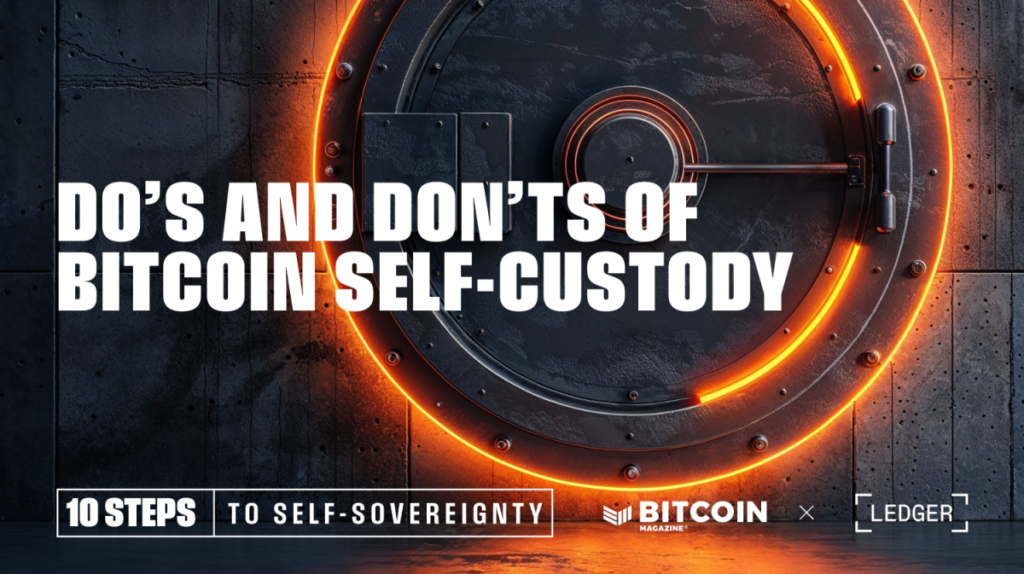Summary
TLDR: Bitcoin self-custody means you are responsible for the safety of your funds, no one can freeze your funds or stop your payments. Custodial wallets give control to the platform, non-custodial wallets offer true ownership but come with risks. Use hardware wallets for security, never create digital seed phrase backups, and test transactions before sending large amounts. Multisig wallets require extra backups, and keep your Bitcoin holdings private to reduce risk of theft. Bitcoin can be intimidating to self-custody, but with proper precautions, it can be safer than cash.
Key Points
1. Bitcoin is a completely decentralized system, there is no ability to reverse payments, and there is no customer support line where you can call for help if you mess something up. When you take self-custody of your own Bitcoin, you and only you are responsible for the safety of your funds. Self-custody also means that no one can freeze your funds, and no one can stop you from making a payment you want to make. It’s a double-edged sword: there are huge benefits to self-custody, but it also comes with responsibility.
2. If you make a mistake and send Bitcoin to the wrong address there is no undoing it. Then if someone can access your seed phrase (seed words), there is no customer support to help you, that person now has access to your money. If you lose your keys and your seed phrase backups, there is no recovery process to get your wallet back. It’s very much like cash in that regard: once it’s gone, it’s gone.
3. People generally go through life with no existential anxiety over having small amounts of cash but protecting significant amounts of money presents a source of worry, and Bitcoin is no different.
4. Custodial wallets are generally offered by centralized exchanges, the same platforms that allow you to buy Bitcoin with fiat currency. These wallets work essentially just like a bank account. You do not actually have any control of your money. They can freeze your funds, lock and close your account, and deny you permission to make transactions or withdrawals with your own money. They do offer the potential to transact very cheaply with other users of the same wallet, but at the cost of giving control over your money to the custodian. They should never be used to store any significant amount of money, and any Bitcoin you purchase should be withdrawn to a non-custodial wallet as soon as possible.
5. Non-custodial wallets all offer true self-custody: only you have access to your assets. But even wallets that offer self-custody come with a range of trade-offs. They can also serve different purposes.
6. Software Wallets, also known as hot wallets, run on your mobile phone or your laptop computer. They do leave control over your funds in your own hands, but they manage and store the private keys on your device. This exposes them to the risk of compromise by hackers. You should only protect small amounts of money with a software wallet, what you reasonably expect to spend in a short time period.
7. Hardware wallets that you actually use to sign transactions are specifically designed to hold the private keys your seed generates securely. When you make a backup of your seed phrase it should strictly be on something analog; a piece of paper, a steel plate with punched letters, something physical and completely offline.
8. If you are using a multisig wallet, the seed phrase backups are not enough to recover your funds. The point of multisig is to increase your security by requiring more than one key to sign to spend your money. Typically, they will require a minimum threshold of devices that must sign each transaction. For example, it might require 2 out of 3 signatures. This ensures that someone compromising or you losing a key or two doesn’t result in losing your funds, but it comes with a nuanced catch.
9. Being involved in Bitcoin can be a very exciting experience, especially when the price is going up. This can also be a liability depending on who knows about your Bitcoin holdings. As was mentioned earlier, if someone can gain access to your seed phrase they gain access to your money. Bitcoin has the potential to become immensely valuable in the future.
10. Bitcoin can be intimidating to self-custody because of the risks it shares in common with cash, but when you really take the time to learn what tools are available to help you self-custody it, it’s not that intimidating. In many ways, it can be safer than cash to hold yourself.


